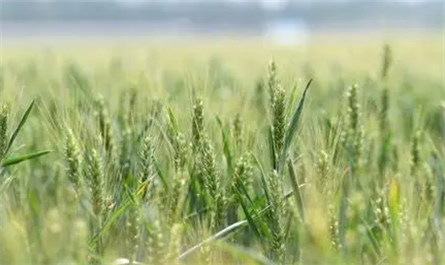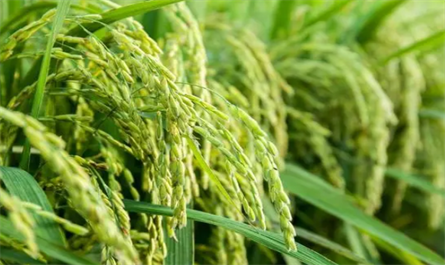How to use brassinolide in wheat, corn and rice with high efficiency and increase yield
Brassinolide is a plant growth regulator that promotes the growth and development of wheat, rice and corn, improving yield and quality. It can be used in key periods such as seed dressing, seedling stage, jointing stage, flowering stage and grain filling stage, and can be used in conjunction with other fertilizers or chemicals.
Brassinolide is a plant growth regulator that promotes the growth and development of wheat, rice and corn, improving yield and quality. It can be used in key periods such as seed dressing, seedling stage, jointing stage, flowering stage and grain filling stage, and can be used in conjunction with other fertilizers or chemicals.

1. Wheat
Brassinolide is needed during important stages such as seed dressing stage, seedling stage, jointing stage, flowering stage and grain filling stage. Brassinolide can promote the growth and development of wheat, improve its stress resistance, increase tillers, promote development and increase yield. It is recommended that when dressing wheat seeds, use 10 ml of 0.01% Brassinolide for seeds in one acre of land, and mix them with a wheat seed dressing agent to reduce wheat diseases, promote wheat rooting, and increase the emergence rate! Before overwintering, you can also use 10 ml of Brassinolide per acre, add 15 kg of water, and add high-nitrogen water-soluble fertilizer and amino acid water-soluble fertilizer for foliar spraying. It can enhance the stress resistance and cold and frost resistance of wheat!
Use the formula before overwintering to spray wheat during the regreening and jointing stages, which can increase wheat tillering, make wheat grow vigorously, and enhance stress resistance. Use 10 ml of brassinolide and amino acid water-soluble fertilizer during the flowering and filling stages. Adding 100 grams of potassium dihydrogen phosphate and 15 kilograms of water to the wheat leaves can increase the number of effective spikes, extend the grain filling period and increase the thousand-grain weight.

2. Rice
Brassinolide can also be used during the critical stages of seedling, pre-transplanting, tillering and grain-filling stages. It can improve the stress resistance and yield of rice, and also improve the quality of rice. It is recommended to use 10 ml of 0.01% brassinolide per acre, plus high nitrogen water-soluble fertilizer and amino acid water-soluble fertilizer as foliar spray during the seedling stage, before transplanting and tillering stage. It can accelerate the growth of new roots, make the seedlings strong, turn green quickly, increase tillering, and heading early, enhance the stress resistance of the seedlings, and improve the cold resistance of the rice seedlings.
Before heading, during the grain filling period, use 10 ml of Brassinolide per acre, add amino acid water-soluble fertilizer, add 100 grams of potassium dihydrogen phosphate, add 15-30 kg of water, and spray on the leaves, which can effectively improve the yield and quality of rice.
.png)
3.Corn
Brassinolide treatment was performed once each at 7 days and 17 days after the ear differentiation stage, floret differentiation stage, tasseling stage, and silking stage. When using, still use 0.01% Brassinolide 10 ml, plus high nitrogen water-soluble fertilizer, amino acid water-soluble fertilizer and 15 kg of water for foliar spraying. It can improve the drought resistance of corn and reduce the abortion rate, thus greatly increasing the yield. Before the heading stage of corn, use 10 ml of Brassinolide again, add amino acid water-soluble fertilizer, add 100 grams of potassium dihydrogen phosphate, add 15-30 kg of water, and spray the leaves to further improve the yield and quality of corn.
Brassinolide is a very effective plant growth regulator used on wheat, rice and corn to promote crop growth and development and improve crop stress resistance and yield. In practical applications, Brassinolide can be flexibly used with other fertilizers or chemicals according to the needs of different crops and different growth stages.
Brassinolide is a plant growth regulator that promotes the growth and development of wheat, rice and corn, improving yield and quality. It can be used in key periods such as seed dressing, seedling stage, jointing stage, flowering stage and grain filling stage, and can be used in conjunction with other fertilizers or chemicals.

1. Wheat
Brassinolide is needed during important stages such as seed dressing stage, seedling stage, jointing stage, flowering stage and grain filling stage. Brassinolide can promote the growth and development of wheat, improve its stress resistance, increase tillers, promote development and increase yield. It is recommended that when dressing wheat seeds, use 10 ml of 0.01% Brassinolide for seeds in one acre of land, and mix them with a wheat seed dressing agent to reduce wheat diseases, promote wheat rooting, and increase the emergence rate! Before overwintering, you can also use 10 ml of Brassinolide per acre, add 15 kg of water, and add high-nitrogen water-soluble fertilizer and amino acid water-soluble fertilizer for foliar spraying. It can enhance the stress resistance and cold and frost resistance of wheat!
Use the formula before overwintering to spray wheat during the regreening and jointing stages, which can increase wheat tillering, make wheat grow vigorously, and enhance stress resistance. Use 10 ml of brassinolide and amino acid water-soluble fertilizer during the flowering and filling stages. Adding 100 grams of potassium dihydrogen phosphate and 15 kilograms of water to the wheat leaves can increase the number of effective spikes, extend the grain filling period and increase the thousand-grain weight.

2. Rice
Brassinolide can also be used during the critical stages of seedling, pre-transplanting, tillering and grain-filling stages. It can improve the stress resistance and yield of rice, and also improve the quality of rice. It is recommended to use 10 ml of 0.01% brassinolide per acre, plus high nitrogen water-soluble fertilizer and amino acid water-soluble fertilizer as foliar spray during the seedling stage, before transplanting and tillering stage. It can accelerate the growth of new roots, make the seedlings strong, turn green quickly, increase tillering, and heading early, enhance the stress resistance of the seedlings, and improve the cold resistance of the rice seedlings.
Before heading, during the grain filling period, use 10 ml of Brassinolide per acre, add amino acid water-soluble fertilizer, add 100 grams of potassium dihydrogen phosphate, add 15-30 kg of water, and spray on the leaves, which can effectively improve the yield and quality of rice.
.png)
3.Corn
Brassinolide treatment was performed once each at 7 days and 17 days after the ear differentiation stage, floret differentiation stage, tasseling stage, and silking stage. When using, still use 0.01% Brassinolide 10 ml, plus high nitrogen water-soluble fertilizer, amino acid water-soluble fertilizer and 15 kg of water for foliar spraying. It can improve the drought resistance of corn and reduce the abortion rate, thus greatly increasing the yield. Before the heading stage of corn, use 10 ml of Brassinolide again, add amino acid water-soluble fertilizer, add 100 grams of potassium dihydrogen phosphate, add 15-30 kg of water, and spray the leaves to further improve the yield and quality of corn.
Brassinolide is a very effective plant growth regulator used on wheat, rice and corn to promote crop growth and development and improve crop stress resistance and yield. In practical applications, Brassinolide can be flexibly used with other fertilizers or chemicals according to the needs of different crops and different growth stages.



